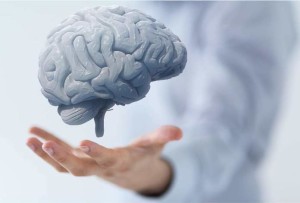Let’s debunk these ten brain and brain health myths
 .
.
In honor of Brain Awareness Week 2016, let’s debunk ten myths about the brain and brain health that remain surprisingly popular.
Top 10 brain and brain health myths, debunked:
Myth 1. Genes determine the fate of our brains.
Fact: Lifelong brain plasticity means that our lifestyles and behaviors play a significant role in how our brains (and therefore our minds) evolve physically and functionally as we get older.
Myth 2. We are what we eat.
Fact: We are what we do, think, and feel, much more than what we eat. (Even if, yes, nutrition plays a role)
Myth 3. Medication is the main hope for brain health and enhancement.
Fact: Non-invasive interventions such as aerobic exercise and meditation can have comparable and more durable benefits, and free of side effects.
Myth 4. There’s nothing we can do to beat Alzheimer’s disease and cognitive decline.
Fact: While nothing has been proven to prevent the pathology of Alzheimer’s disease, there is abundant research showing we can delay the onset of symptoms for years.
Myth 5. There is only one “it” in “Use it or Lose it”.
Fact: The brain presents many neural circuits supporting a variety of important cognitive, emotional, and executive functions. Not just one. (Which is one of the reasons we should stop thinking about magic pills and silver bullets)
Myth 6. Intervention XYZ can help reverse your brain age 10, 20, or 30 years.
Fact: The concept of “brain age” is a fiction. Some brain functions tend to improve, and some to decline, as we get older. Nothing can be said to “reverse brain age” in a general sense.
Myth 7. There is a scientific consensus that brain training doesn’t work.
Fact: A group of scientists did issue such a statement, which was promptly contradicted by a larger group of scientists. Consensus…that is certainly not. Brain training, when it meets certain conditions, has been shown to transfer into real-world outcomes.
Myth 8. Brain training is primarily about videogames.
Fact: Evidence-based brain training includes some forms of meditation, cognitive therapy, cognitive training, and bio/neurofeedback. Interactive media such as videogames can make those interventions more engaging and scalable, but it is important to distinguish the means from the end, as obviously not all videogames are the same.
Myth 9. Heart health equals brain health.
Fact: While heart health contributes significantly to brain health, and vice versa, the heart and the brain are separate organs, with their respective functions and relevant interventions. What we need  is to pay much more systematic attention to brain health, so it can advance as much as cardiovascular health already has.
is to pay much more systematic attention to brain health, so it can advance as much as cardiovascular health already has.
Myth 10. As long as my brain is working fine, why should I even pay attention to it?
Fact: For the same reasons you add gas to your car, and change the oil regularly– so that it works well, and for a long period of time.
–> To learn more, please join this Webinar on April 21st: 50 Must-Know Facts to Harness Neuroplasticity & Technology For Better Brain Health (Note: Registration covers the webinar AND 15+ hours of recordings from 2015 SharpBrains Virtual Summit)


